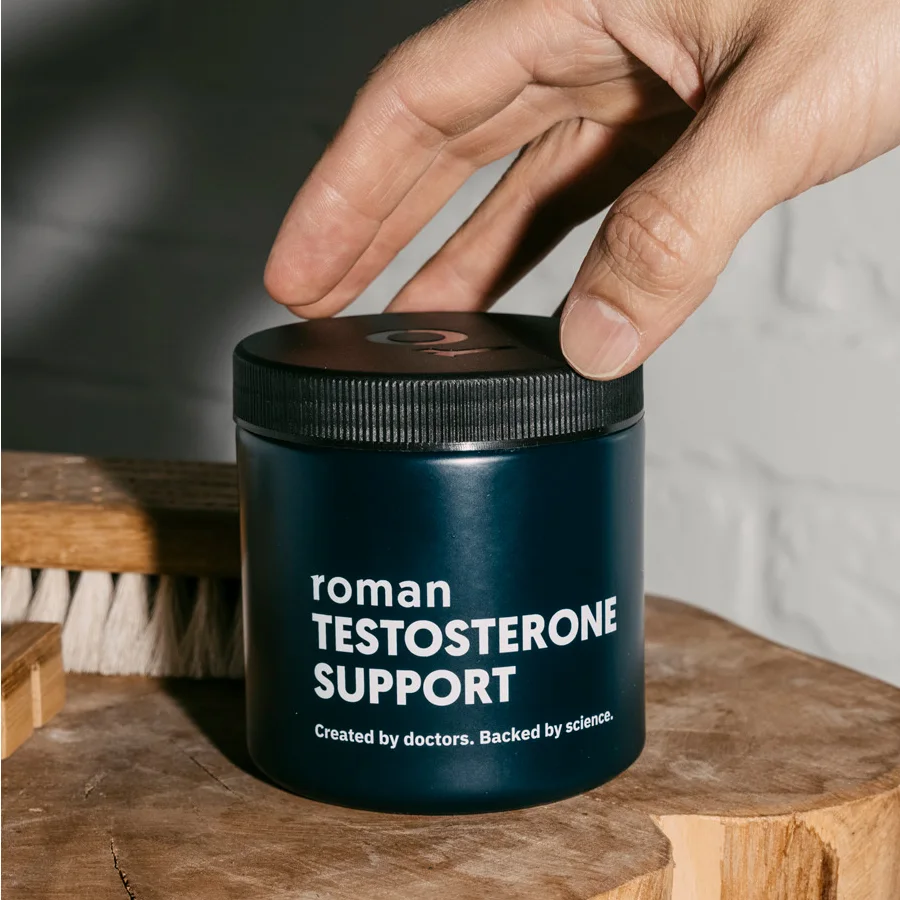Here's what we'll cover
Here's what we'll cover
You may be familiar with testosterone, the hormone that’s an essential part of every person’s health, but especially so in men. Testosterone is responsible for many processes in the body, including building muscle mass, developing bone strength, and improving sex drive. But can low testosterone cause anxiety and depression? The answer is yes. Continue reading to learn more.
How does testosterone affect your mood?
Testosterone is a steroid hormone involved in many roles in your body, including mood and mental health. When your hormone levels are in the normal range, they help keep your body and mind balanced. Both high and low levels of testosterone can influence how you feel. Higher-than-normal testosterone levels may make people act more aggressively, while low testosterone levels may dampen someone’s mood (Zitzmann, 2020).
Studies suggest that people with low testosterone (low T) may experience depression, anxiety, and fatigue, which can negatively impact their quality of life. Testosterone may promote higher levels of serotonin, which has a role in boosting mood and decreasing depression. With low T levels, this extra serotonin boost may be lacking (Walther, 2019).
Low testosterone's role in causing anxiety isn’t well known, but studies suggest that low testosterone and anxiety are closely linked. The theory is that replacing testosterone if you have low levels may reduce stress, fear, and overall anxiety (Zitzmann, 2020).
Symptoms of depression and anxiety
Depression can cause many symptoms. Not everyone experiences depression the same way; sometimes, the signs aren’t as obvious. The symptoms of depression can include (NIMH-a, 2022):
Feeling sad or “empty”
Irritability
Low energy
Sleep disturbance (too much or not enough)
Appetite changes
Weight loss
No interest in activities that you used to like
Feeling helpless
Mood changes
Anxiety can go along with depression, or you can experience it alone. Some anxiety symptoms can even overlap and be similar to depression symptoms. Symptoms of anxiety can include (NIMH-b, 2022):
Irritability
Worrying and having difficulty stopping
Restlessness
Feeling on-edge
Having trouble sleeping
A feeling of impending doom
When experiencing depression and anxiety, men may have different symptoms than women. Men may experience less of the “typical” depression symptoms of sadness, but may express more irritability and anger. They may also lose interest in activities such as work, hobbies, or family activities. Physical symptoms, like racing heartbeat, chest pain, or gastrointestinal problems, may also be more common (NIMH-c, 2022).
How can you tell if it’s low T or something else?
Many people are not eager to seek treatment for their symptoms, sometimes out of fear of being labeled as having a mental illness. Some might not put together the pieces that low testosterone levels can lead to depression and anxiety.
If you’re feeling irritable, quick to anger, and have lost interest in the activities you usually enjoy, it’s certainly possible you have depression and maybe anxiety as well. If you have any of the following other symptoms along with the ones listed above, you may have low T as well, as symptoms of low testosterone include (MedLine Plus, 2021):
Decreased sex drive
Erectile dysfunction (difficulty getting an erection)
Weight gain (usually due to increased body fat)
Loss of muscle mass
Trouble with concentration
Mood swings
Hair loss
How to treat low testosterone and depression
It’s important to seek medical advice if you’re concerned you may have depression, anxiety, low testosterone, or all of the above. Available treatments can help you get back to feeling like your old self. Your healthcare team will work with you to find the best treatment plan.
If your depression and anxiety symptoms are related to low T, improving your testosterone levels may improve these symptoms. Low T can be treated with testosterone replacement therapy, also called TRT. TRT can be given through a patch on the skin, injections, topical gel, or pellet implants (MedLinePlus, 2021). Sometimes, your provider may try a medication called Clomid to raise your testosterone levels if you’re not a good candidate for TRT.
However, if low T isn’t the cause of your depression or anxiety, starting testosterone therapy isn’t likely to help. Depression can be treated with medications and talk therapy. Antidepressant medications may take a few weeks to notice improvement, and that’s important to keep in mind. They may also have some side effects, and it’s important to discuss these with your healthcare provider. Seeing a therapist or psychiatrist to help work through your feelings has also been shown to be an effective treatment (NIMH-c, 2022).
Mental health is health. Don’t feel ashamed or embarrassed to talk to your healthcare provider about what you’re experiencing. Whether it’s coming from a medical issue, like low T, or somewhere else, help is available.
DISCLAIMER
If you have any medical questions or concerns, please talk to your healthcare provider. The articles on Health Guide are underpinned by peer-reviewed research and information drawn from medical societies and governmental agencies. However, they are not a substitute for professional medical advice, diagnosis, or treatment.
MedLinePlus. (2021). Could you have low testosterone? Retrieved from https://medlineplus.gov/ency/patientinstructions/000722.htm
National Institute of Mental Health (NIMH-a). (2022). Depression . Retrieved from https://www.nimh.nih.gov/health/topics/depression
National Institute of Mental Health (NIMH-b). (2022). Anxiety disorders . Retrieved from https://www.nimh.nih.gov/health/topics/anxiety-disorders
National Institute of Mental Health (NIMH-c). (2022). Men and depression . Retrieved from https://www.nimh.nih.gov/health/publications/men-and-depression
Walther, A., Breidenstein, J., & Miller, R. (2019). Association of testosterone treatment with alleviation of depressive symptoms in men: a systematic review and meta-analysis. JAMA Psychiatry , 76 (1), 31-40. doi:10.1001/jamapsychiatry.2018.2734. Retrieved from https://jamanetwork.com/journals/jamapsychiatry/article-abstract/2712976
Wein, H. (2013). Understanding how testosterone affects men . National Institutes of Health (NIH) . Retrieved from https://www.nih.gov/news-events/nih-research-matters/understanding-how-testosterone-affects-men
Zitzmann, M. (2020). Testosterone, mood, behaviour and quality of life. Andrology , 8 (6), 1598-1605. doi:10.1111/andr.12867. Retrieved from https://onlinelibrary.wiley.com/doi/full/10.1111/andr.12867










